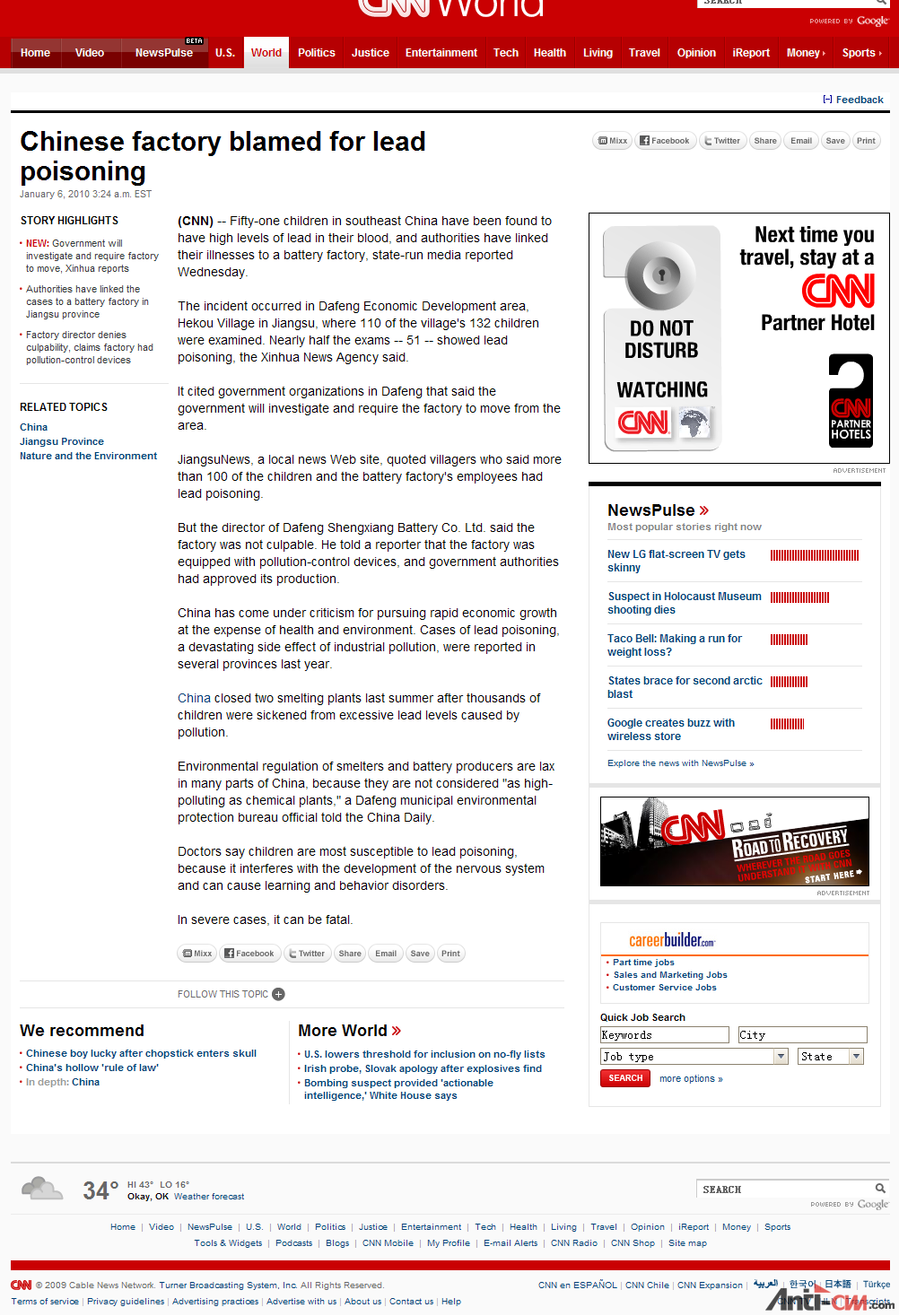|
|
http://www.cnn.com/2010/WORLD/asiapcf/01/05/china.lead.poisoning/index.html?iref=allsearch
(CNN) -- Fifty-one children in southeast China have been found to have high levels of lead in their blood, and authorities have linked their illnesses to a battery factory, state-run media reported Wednesday.
The incident occurred in Dafeng Economic Development area, Hekou Village in Jiangsu, where 110 of the village's 132 children were examined. Nearly half the exams -- 51 -- showed lead poisoning, the Xinhua News Agency said.
It cited government organizations in Dafeng that said the government will investigate and require the factory to move from the area.
JiangsuNews, a local news Web site, quoted villagers who said more than 100 of the children and the battery factory's employees had lead poisoning.
But the director of Dafeng Shengxiang Battery Co. Ltd. said the factory was not culpable. He told a reporter that the factory was equipped with pollution-control devices, and government authorities had approved its production.
China has come under criticism for pursuing rapid economic growth at the expense of health and environment. Cases of lead poisoning, a devastating side effect of industrial pollution, were reported in several provinces last year.
China closed two smelting plants last summer after thousands of children were sickened from excessive lead levels caused by pollution.
Environmental regulation of smelters and battery producers are lax in many parts of China, because they are not considered "as high-polluting as chemical plants," a Dafeng municipal environmental protection bureau official told the China Daily.
Doctors say children are most susceptible to lead poisoning, because it interferes with the development of the nervous system and can cause learning and behavior disorders.
In severe cases, it can be fatal.

|
blamed, Chinese, CNN, Factory, poisoning, blamed, Chinese, CNN, Factory, poisoning, blamed, Chinese, CNN, Factory, poisoning
|